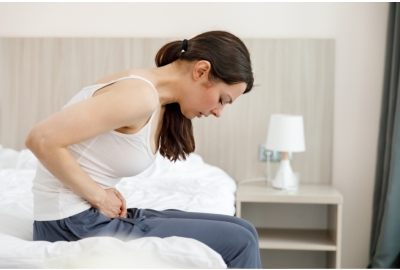
Can I Get a UTI (Urinary Tract Infection) on My Period?
Urinary tract infections (UTIs) are a common health concern for many individuals, especially women. However, there can be some confusion surrounding the relationship between UTIs and menstruation. In this blog post, we will explore the factors that can contribute to UTIs during menstruation and provide helpful information to understand and prevent these uncomfortable infections.

Understanding UTIs: What is it?
Before diving into the connection between UTIs and menstruation, let's briefly discuss what a UTI is. A urinary tract infection occurs when bacteria enter the urinary system and multiply, leading to inflammation and infection in the bladder, urethra, or kidneys. Common symptoms of UTIs include frequent urination, a burning sensation during urination, cloudy or strong-smelling urine, and lower abdominal pain.
The Connection Between UTIs and Menstruation
While menstruation itself does not directly cause UTIs, certain factors related to menstruation can increase the risk of developing a UTI during this time. Here are a few key factors to consider:
- Hormonal Changes: Hormonal fluctuations during the menstrual cycle can impact the pH levels in the urinary tract, making it a more favorable environment for bacteria to grow. These changes can potentially increase the risk of developing a UTI.
- Hygiene: The use of tampons and sanitary pads can sometimes introduce additional bacteria into the vaginal area. If proper hygiene practices are not followed, these bacteria can travel into the urethra and cause an infection.
- Prolonged Use of Menstrual Products: Prolonged use of tampons or sanitary pads, especially when not changed regularly, can create a warm and moist environment, providing a breeding ground for bacteria. This can potentially increase the risk of UTIs.
Preventing UTIs During Menstruation
Fortunately, there are several steps you can take to reduce the risk of UTIs during your period:
- Maintain Good Hygiene: Practice proper hygiene by washing your hands before and after using the bathroom and ensure that your genital area is kept clean. When using sanitary products, change them frequently according to the manufacturer's recommendations.
- Stay Hydrated: Drinking plenty of water helps flush bacteria out of your urinary system, reducing the chances of an infection.
- Choose the Right Menstrual Products: Consider using tampons, sanitary pads, or menstrual cups made from breathable materials to promote better airflow and minimize moisture. Additionally, avoid scented products, as they may cause irritation.
- Empty Your Bladder Regularly: Urinating regularly helps flush out bacteria that may have entered the urinary tract. Make sure to empty your bladder before and after sexual activity.
- Urinate After Sexual Activity: Urinating after sexual activity can help flush out any bacteria that may have entered the urethra during intercourse.
While menstruation itself does not directly cause UTIs, hormonal changes and certain practices during this time can increase the risk of developing an infection. By understanding the connection between UTIs and menstruation and implementing preventive measures, you can reduce your chances of experiencing a UTI during your period. Remember to maintain good hygiene, stay hydrated, choose the right menstrual products, and practice safe habits to promote a healthy urinary tract.
Disclaimer: This blog post is for informational purposes only and does not constitute medical advice. If you suspect you have a UTI or have any concerns, it is important to consult a healthcare professional for proper diagnosis and treatment.